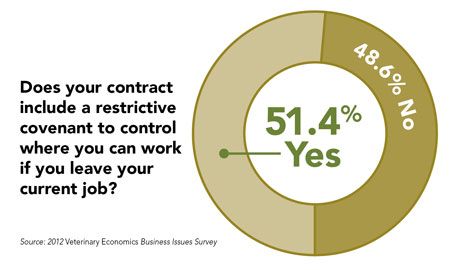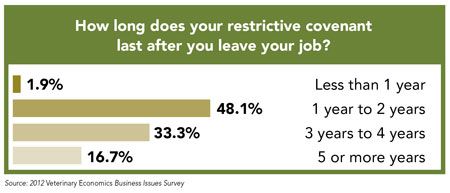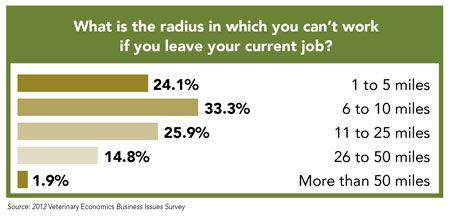The truth behind veterinary associates' restrictive covenants
Does the word "contract" send shivers down your spine? Are your palms sweating just thinking about noncompete clauses and restrictive covenants? Let us ease your fears and set the record straight on what's legal.
Next >
Much like expressing anal glands and dealing with Dr. Google, restrictive covenants are one of the necessary evils in veterinary practice. Dr. Jim Guenther, MBA, CVPM, owner and president of Strategic Veterinary Consulting in Asheville, N.C., says practice owners need to protect themselves when they've got a well-liked, high-producing associate at their practice. A restrictive covenant is the only thing keeping him or her from setting up shop next door and stealing away hard-earned clients. On the other hand, restrictive covenants need to be fair to associates, or those well-liked veterinarians won't make a stop -- temporary or permanent -- at your practice.
Associates are understandably nervous about the clauses, Dr. Guenther explains. Some noncompete clauses state that if you leave your current position, you cannot practice veterinary medicine in the area for X number of years. So if you're a large animal practitioner and all of a sudden you want to set up a small animal practice -- you can't, he says. It may not be the intent of the contract, but that’s what the clause says.
"If you sign that, you're signing your life away," Dr. Guenther says. " You're locked out of your livelihood."
According to data from the 2012 Veterinary Economics Business Issues Survey, 51 percent of associates now work under a contract that includes a restrictive covenant. The majority of veterinarians (26 percent) said they can’t work within an 11 to 15 miles of their former practice, and 48 percent said their restrictive covenant lasts one to two years they leave their job. Check out the following pages to learn more dirty details about restrictive covenants and noncompetes.



When does a noncompete clause go too far? Click here for a Practice Management Q&A with Dr. Christopher Allen, JD, on that topic.